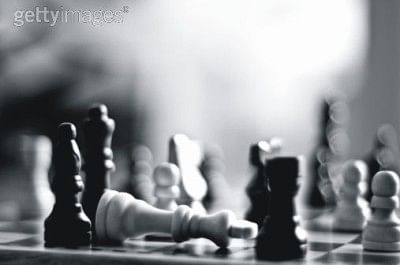When state is the cause of its own insecurity

Playing by the rules is important. gettyimages.com
OF all the threats to a nation's security, the greatest stems from the state itself, according to experts. States become the cause of its own insecurity because of what it does or fails to do. More specifically, it is what the government, which runs the affairs of the state, does and does not do in respect of the safety of its citizens that poses the greatest threat to a state.
The coercive instruments, though no longer its exclusive monopoly, are wielded with impunity by the state, it being answerable to none but to its conscience and, perhaps, to the international opinion only, that is if its sensitive chords are not covered by a skin as thick as the rhino's.
It was hard to comprehend the underlying philosophy of the proposition at first. However, seeing the recent occurrences in Bangladesh and having been witness to the power play of the two major parties, particularly at the fag end of the BNP led 4-party rule, the evocation has strong rationale. The reactions and actions of the government to various developments have made it as well as the state vulnerable from within.
One would not be remiss to suggest that in Bangladesh today, in most of the realms of our activities as citizens, our space has been so severely constrained that it is giving rise to the worry that we may willy-nilly become a victim of bad governance, with coercion as the main instrument to keep everyone in line.
Particularly when saviours become predators, and the state, whose primary responsibility it is to ensure the physical safety of its people, is unable to ensure that fully, when political space is denied to the opposition and when all types of subterfuges are employed to send an indirect message to the media to exercise self-censorship, inevitably, confidence in the system is sapped. Extreme repressive measures over time become the norm, and the government assumes a repressive disposition, the regime an authoritarian character; all these are recipes for internal flux.
The inevitable fallout of the situation is that people take up law in their own hands, like we saw happen when some alleged dacoits were beaten to death by a mob, political atmosphere becomes volatile, and intimidation is used to subdue the opposition, party appendages run amok, and the executive loses control over its agencies, all indicative of governance gone awry.
But the current state of affairs is not unique to the time or the political alliance in charge of the affairs of the state. Just rewind to six or ten years to the past and you will see the same picture, only the canvas has changed and so has the painter, the victims remain the same, political opponents and the people suffer under the regime that happens to wield power at the top.
In short, the continued prevalence of the culture of political intolerance, level of societal violence, behaviour of the law enforcing agencies that amounts to criminality, lack of accountability at all levels, activities of the student wing of the ruling party, culture of blaming the past governments, belie the promised change that the grand alliance led by the Awami League had promised the people.
One often overlooks the fact that there is a thin line of difference between good governance, bad governance and non-governance. The transition from the good to the bad is imperceptible, particularly to a headstrong regime that arrogance of power has blinded to the reality. And sometimes the transition may be so abrupt that it does not appear that there was a gradual degeneration.
Democracy sounds hollow when precepts are flaunted with abandon but not practiced on ground. All these fit the picture of an illiberal democracy in the making. Are we moving in that direction?
What does one as citizen expect from good governance? The benefits derive from the freedom to feel safe, from being able to fulfill ones basic needs, from the freedom to express peacefully without fear of death or incarceration, and a raft of other preconditions that make one's life worth living, of course all within the bounds of the legal norms. Do we have all these?
While we do not want to see innocent passers-by become victims of the pro-hartal activists, the government will do democracy a lot of good if it allows peaceful protests by the opposition. The way the opposition was harried and prevented from forming human chain only demonstrates the culture of intolerance in our politics.
We want to be governed by the rule of law and not of men. The number of extrajudicial deaths does little to enhance our law-abiding credentials, particularly the three deaths in police custody early this month. Crossfire deaths have become euphemism for murder. The saving grace is the higher judiciary and the newly formed Human Rights Commission, which has come down heavily on the law enforcing agencies.
There is a thin line of difference between democracy, and illiberalism. When that is crossed once too often, not only the government but also the state stands to suffer.

 For all latest news, follow The Daily Star's Google News channel.
For all latest news, follow The Daily Star's Google News channel. 



Comments